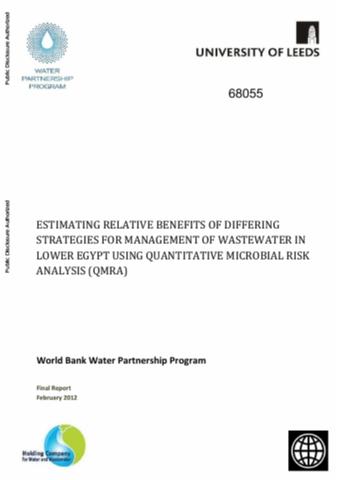Resource information
The report uses a theoretical model of a typical drainage basin, but the approach could be applied to many of the drainage basins managed by the holding company for water and wastewater in Egypt. This study set out to assess the relative health impacts of different wastewater management strategies on health in the Nile delta region using an approach similar to that used in the Ghana. The ultimate objective was to develop a framework for long-term investment planning based on monitoring of health and productivity impacts of proposed Bank operations which could be included in project Monitoring and Evaluation (M&E) systems. This will equip task teams to assess the risks and opportunities which arise due to the proposed shift from on-site to networked sanitation in four governorates where the Bank has wastewater operations. A secondary objective was to assess the extent to which existing legislation supports health riskbased planning. The conclusions of the study provide an indication of how such methods could increasingly be used to enable the selection of cost-effective and appropriate wastewater management strategies.


